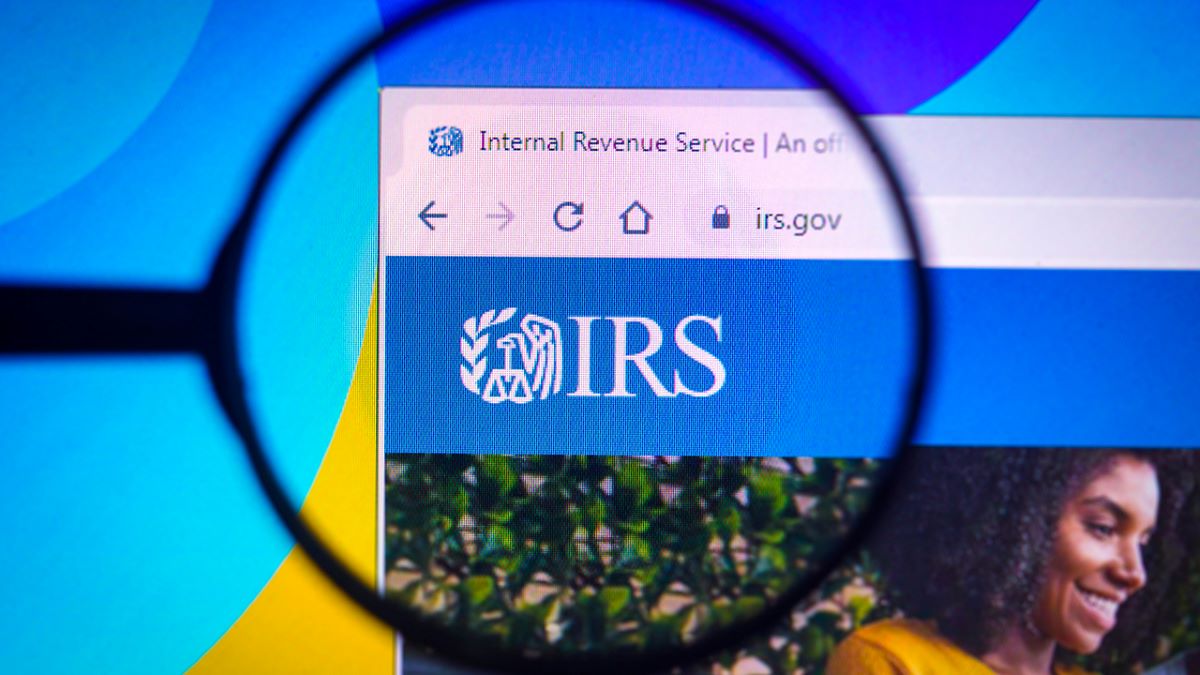

Finance
How To Get Health Insurance Without A Job
Published: October 30, 2023
Find out how to secure health insurance coverage even without a job. Explore finance options and make informed decisions for your financial well-being.
(Many of the links in this article redirect to a specific reviewed product. Your purchase of these products through affiliate links helps to generate commission for LiveWell, at no extra cost. Learn more)
Table of Contents
- Introduction
- Understanding the Importance of Health Insurance
- Researching Available Options
- Medicaid and CHIP
- Healthcare Marketplace
- COBRA Insurance
- Short-Term Health Insurance
- Income-Based Subsidies
- Professional Organizations and Associations
- Negotiating Health Insurance Rates
- Taking Advantage of State Programs
- Utilizing Health Savings Accounts (HSAs)
- Conclusion
Introduction
Health insurance is an essential aspect of our lives, providing financial protection against the high costs of medical care. However, finding health insurance can be daunting, especially if you don’t have a job or are in between jobs. It is important to understand that not having a job doesn’t mean you have to go without health insurance. There are several options available that can help you secure the coverage you need.
In this article, we will explore various ways to obtain health insurance without a job. We will discuss government programs like Medicaid and the Children’s Health Insurance Program (CHIP), as well as options like the Healthcare Marketplace, COBRA insurance, and short-term health insurance. We will also delve into income-based subsidies, professional organizations and associations, negotiating health insurance rates, utilizing state programs, and the benefits of health savings accounts (HSAs).
While it may seem overwhelming at first, understanding the available options and doing thorough research can make the process of obtaining health insurance without a job much easier. By taking the time to explore various avenues, you can find a solution that fits your needs and budget.
It is crucial to note that health insurance is not an expense to be avoided but rather an investment in your well-being. Unexpected medical emergencies or illnesses can cause a significant financial burden, and having health insurance can provide peace of mind and access to necessary medical care. Additionally, by having health insurance, you can benefit from preventive services and regular check-ups, which can help detect potential health issues before they become more severe.
Now, let’s delve into the different options available to obtain health insurance without a job. Whether you are unemployed, self-employed, or searching for a new job, there are options out there to ensure you have the coverage you need to protect yourself and your family’s health.
Understanding the Importance of Health Insurance
Health insurance plays a crucial role in safeguarding your financial well-being and providing access to quality healthcare services. Without insurance, even a minor illness or injury can lead to substantial medical expenses that can quickly accumulate and become overwhelming.
One of the primary benefits of health insurance is that it helps cover the cost of medical treatments and procedures. Whether you need a routine check-up, prescription medications, or specialized treatments, having insurance can significantly reduce your out-of-pocket expenses. This allows you to prioritize your health without worrying about the financial implications.
Additionally, health insurance provides access to a wide network of healthcare providers. With insurance coverage, you can choose doctors, specialists, hospitals, and clinics that are part of your provider network. This ensures that you receive quality care from reputable professionals and institutions.
Health insurance also promotes preventive care. Many insurance plans cover preventive services such as vaccinations, screenings, and wellness check-ups. By taking advantage of these services, you can identify potential health issues early on, leading to faster treatment and better outcomes. Preventive care can also help you avoid more significant health problems in the future, reducing healthcare costs in the long run.
In addition to protecting your health and finances, health insurance offers peace of mind. Knowing that you have coverage in case of unexpected medical emergencies or illnesses can alleviate stress and anxiety. It allows you to focus on recovering and getting the necessary treatment without worrying about the associated costs.
Moreover, health insurance offers various benefits and services beyond medical coverage. For example, many plans provide access to 24/7 telehealth services, where you can consult with healthcare professionals remotely. This convenience can be especially beneficial when facing minor ailments or seeking medical advice.
It is crucial to note that health insurance is not a luxury; it is a necessity. Accidents and illnesses can happen to anyone at any time, and having insurance can save you from facing crippling medical debt. It is always better to be prepared and protected, as the cost of medical care continues to rise.
Now that we understand the importance of health insurance, let’s explore the different options available to get coverage without a job.
Researching Available Options
When it comes to obtaining health insurance without a job, it’s crucial to conduct thorough research to understand the available options. By exploring different avenues, you can find a solution that best fits your needs and financial situation. Here are some key steps to consider when researching your options:
1. Evaluate your eligibility for government programs: Start by determining if you qualify for government-funded health insurance programs such as Medicaid and the Children’s Health Insurance Program (CHIP). These programs are designed to provide affordable or free coverage to low-income individuals and families. Eligibility requirements vary by state, so check your state’s guidelines to see if you qualify.
2. Explore the Healthcare Marketplace: The Healthcare Marketplace, also known as the Health Insurance Exchange, is an online platform where you can compare and purchase health insurance plans. Even without a job, you may still be eligible to enroll in a plan through the Marketplace. You can explore different coverage options and find out if you qualify for subsidies or tax credits based on your income.
3. Consider COBRA insurance: If you recently lost your job and had employer-sponsored health insurance, you may be eligible for COBRA coverage. COBRA allows you to continue your previous employer’s health insurance plan for a limited period, typically up to 18 months. However, it’s important to note that COBRA coverage can be expensive since you will be responsible for paying the entire premium, including the portion that was previously subsidized by your employer.
4. Look into short-term health insurance: Short-term health insurance plans are designed to provide temporary coverage during periods of transition, such as job loss. These plans typically offer limited coverage and may have higher deductibles and copayments. While they may not provide comprehensive coverage, they can offer some protection in case of unexpected medical emergencies or illnesses.
5. Research income-based subsidies: Depending on your income level, you may be eligible for income-based subsidies that can help lower the cost of health insurance coverage. These subsidies are typically offered through the Healthcare Marketplace and can help make insurance more affordable, especially if you are unemployed or have a low income.
6. Explore professional organizations and associations: Some professional organizations and associations offer group health insurance plans to their members. If you belong to any professional or trade organizations, inquire about the availability of health insurance options. Group plans often provide more affordable coverage compared to individual plans.
7. Consider negotiating health insurance rates: If you are self-employed or starting a small business, you may have the option to negotiate health insurance rates with insurers. By presenting your case and demonstrating that you can bring a group of individuals, you may be able to secure more competitive rates.
Remember to compare coverage, premiums, deductibles, and networks when researching your options. Take into account your specific healthcare needs and budget to determine the most suitable choice for you.
Now that you are familiar with the research process, let’s explore some specific options available to obtain health insurance without a job.
Medicaid and CHIP
Medicaid and the Children’s Health Insurance Program (CHIP) are government-funded health insurance programs that provide coverage to low-income individuals and families. These programs are administered at the state level, so eligibility requirements and coverage options may vary.
Medicaid is designed to offer comprehensive healthcare coverage to individuals with limited income and resources. Eligibility is based on factors such as income, household size, and disability status. In states that have expanded Medicaid under the Affordable Care Act, more individuals and families may qualify for coverage. Medicaid covers a wide range of medical services, including doctor visits, hospital stays, prescription medications, and preventive care.
CHIP, on the other hand, focuses on providing health insurance to children in low-income families who do not qualify for Medicaid. The program typically covers children up to age 19 and includes comprehensive healthcare benefits like regular check-ups, immunizations, dental care, and vision care.
Applying for Medicaid and CHIP is usually done through a state-specific application process. You can visit your state’s Medicaid and CHIP websites or contact your local Department of Health and Human Services office to learn more about eligibility requirements and how to apply.
It’s worth noting that eligibility for Medicaid and CHIP is not limited to those without a job. Individuals who have recently lost their jobs or experienced a significant decrease in income may also be eligible for these programs. It’s always recommended to explore these options, as they can provide significant cost savings and comprehensive coverage.
If you qualify for Medicaid or CHIP, it’s important to understand the benefits and limitations of the programs. While these programs provide valuable coverage, it’s essential to confirm that the healthcare providers you prefer accepting Medicaid or CHIP. Some providers may have limited availability for Medicaid patients, so it’s important to check if your preferred doctors and hospitals are in the network.
Remember, Medicaid and CHIP are safety net programs designed to ensure that individuals and families have access to necessary healthcare services. If you believe you might qualify for these programs, it is crucial to explore this option as it can offer important coverage and peace of mind.
Now that we’ve discussed Medicaid and CHIP, let’s delve into another option: the Healthcare Marketplace.
Healthcare Marketplace
The Healthcare Marketplace, also known as the Health Insurance Exchange, is an online platform where individuals and families can compare and purchase health insurance plans. It was established under the Affordable Care Act (ACA) to provide accessible and affordable coverage options for individuals who may not have access to employer-sponsored insurance or other government programs.
One of the key benefits of the Healthcare Marketplace is that it offers a range of plans from various insurance providers, allowing you to compare different options based on coverage, premiums, deductibles, and network of healthcare providers. The Marketplace also provides transparency by showing the total cost of each plan, including the monthly premium and estimated out-of-pocket costs.
When enrolling in a plan through the Healthcare Marketplace, you may be eligible for income-based subsidies or tax credits depending on your household income. These subsidies can help lower the monthly premium and reduce your out-of-pocket expenses.
To access the Healthcare Marketplace, you need to open an account and provide information about your household, income, and other relevant details. Based on this information, the Marketplace will determine your eligibility for subsidies and present you with available plans that fit your needs and budget.
It’s important to note that the enrollment period for the Healthcare Marketplace usually occurs during a specific window of time, known as the Open Enrollment Period. However, certain life events such as job loss, marriage, or birth of a child may qualify you for a Special Enrollment Period, allowing you to enroll outside of the regular open enrollment period.
When considering plans on the Healthcare Marketplace, it’s crucial to review the specifics of each plan carefully. Look for details such as the provider network, prescription drug coverage, and any additional benefits or services offered. Make sure the plan you select aligns with your healthcare needs and preferences.
The Healthcare Marketplace provides a convenient and centralized platform for individuals and families to find and purchase health insurance coverage. It’s a valuable resource, especially for those without employer-sponsored insurance or who don’t qualify for other government programs. Exploring the Marketplace can help you access affordable coverage with comprehensive benefits.
Now that we’ve discussed the Healthcare Marketplace, let’s explore another option: COBRA insurance.
COBRA Insurance
COBRA insurance stands for Consolidated Omnibus Budget Reconciliation Act, which is a federal law that allows individuals who have recently lost their jobs to continue their previous employer-sponsored health insurance plan for a limited period of time. This option can provide a bridge of coverage during the transition between jobs or until you find an alternative insurance option.
Under COBRA, you have the right to maintain the same group health insurance coverage that you had while being employed. This includes medical, dental, and vision plans. However, it’s important to note that you will be responsible for paying the full premium for the coverage, including the portion previously covered by your employer.
The duration of COBRA coverage typically lasts up to 18 months, although certain circumstances, such as disability or other qualifying events, may extend the coverage period up to 36 months. The cost of COBRA coverage can be higher compared to what you paid while employed since your employer is no longer subsidizing a portion of the premium.
If you are considering COBRA insurance, it’s essential to evaluate the cost and benefits of continuing your previous employer’s plan. Take into account your healthcare needs, the affordability of the premium, and the network of healthcare providers available under the plan.
One advantage of COBRA is that it allows you to maintain continuity of care if you have ongoing medical treatments, chronic conditions, or established relationships with healthcare providers. It can also provide peace of mind knowing that you have access to the same level of coverage you had while employed.
It’s important to note that COBRA coverage is not available to everyone. To be eligible, you must have been enrolled in an employer-sponsored health insurance plan and have experienced a qualifying event, such as job loss, reduction in work hours, or certain life events like divorce or death of the covered employee.
When you lose your job and become eligible for COBRA, your former employer is required to provide you with written notification regarding your rights and instructions on how to enroll. Make sure to carefully review the information provided and reach out to your employer’s benefits administrator for any clarification or assistance.
COBRA insurance can be a valuable option for individuals transitioning between jobs or experiencing an unexpected job loss. It allows you to maintain your previous employer’s health insurance coverage, which can provide stability and continuity of care. However, it’s important to weigh the costs and benefits of COBRA coverage against other available options to ensure you’re making the most informed decision for your healthcare needs and budget.
Now that we’ve discussed COBRA insurance, let’s explore another option: short-term health insurance.
Short-Term Health Insurance
Short-term health insurance provides temporary coverage for individuals who need insurance for a limited period. This type of insurance can be beneficial for those who are in between jobs, waiting for employer-sponsored coverage to begin, or seeking an alternative to more traditional long-term health insurance plans.
Short-term health insurance plans typically have a duration of a few months to a year, depending on the specific policy. While the coverage may not be as comprehensive as long-term plans, short-term insurance can provide protection against unexpected medical expenses and emergencies.
One advantage of short-term health insurance is its affordability. Premiums for short-term plans are generally lower compared to other types of health insurance. Additionally, these plans often have flexible enrollment periods, allowing you to obtain coverage at any time, not just during specific enrollment periods.
It’s important to note that short-term health insurance plans may not cover pre-existing conditions or provide certain essential health benefits required by the Affordable Care Act. Routine check-ups, preventive care, and maternity care may not be included in the coverage, so it’s essential to review the specific policy details and understand the limitations before enrolling.
While short-term health insurance can be a convenient and affordable option for temporary coverage, it’s vital to consider your specific healthcare needs. If you have ongoing medical conditions or require regular medical care, you may want to explore other alternatives that offer more comprehensive coverage.
When considering short-term health insurance, it’s crucial to read the policy carefully and understand its limitations and exclusions. Pay attention to the coverage period, deductibles, copayments, and maximum benefit limits. Additionally, it’s recommended to research and compare plans from different insurance companies to ensure you choose a reputable provider that offers the coverage you need.
It’s important to remember that short-term health insurance is not intended to replace long-term comprehensive health insurance coverage. These plans are designed to provide temporary coverage during transitional periods. If you anticipate needing insurance for an extended period or have ongoing healthcare needs, it’s advisable to explore other options like Medicaid, the Healthcare Marketplace, or COBRA insurance.
Now that we’ve explored short-term health insurance, let’s discuss another option: income-based subsidies.
Income-Based Subsidies
Income-based subsidies are financial assistance programs provided to individuals and families with low to moderate incomes to help make health insurance coverage more affordable. These subsidies are typically available through the Healthcare Marketplace and can significantly reduce monthly premiums and out-of-pocket expenses.
The two main types of income-based subsidies are the Premium Tax Credit and the Cost-Sharing Reduction (CSR).
The Premium Tax Credit is a subsidy based on your household income and family size. It is designed to help individuals and families pay for health insurance premiums. The amount of the subsidy is calculated on a sliding scale, with those earning lower incomes receiving higher subsidies. When applying for insurance through the Healthcare Marketplace, you will provide income information to determine if you are eligible for the Premium Tax Credit.
Cost-Sharing Reductions (CSR) are additional subsidies available to individuals and families with lower incomes. These subsidies help reduce out-of-pocket costs such as deductibles, copayments, and coinsurance. CSR subsidies are only available to those who enroll in silver-level plans through the Healthcare Marketplace and meet certain income requirements.
To qualify for income-based subsidies, it’s important to estimate your income for the year accurately. Changes in your income, family size, or employment status may affect your eligibility for these subsidies. It’s advisable to report any changes promptly to ensure you receive the appropriate amount of subsidies throughout the year.
It’s essential to review and compare different plans on the Healthcare Marketplace to understand how income-based subsidies can impact the affordability of each option. By applying for subsidies and selecting a plan that fits your needs, you can significantly reduce the cost of health insurance coverage.
It’s important to note that income-based subsidies are only available to individuals and families who do not have access to affordable employer-sponsored insurance or certain government programs like Medicaid. If you are eligible for employer-sponsored coverage but find it unaffordable, you may not qualify for income-based subsidies.
Exploring income-based subsidies can be a valuable option for individuals and families with lower incomes who are seeking affordable health insurance coverage. By providing financial assistance, these subsidies make it easier to access comprehensive healthcare benefits and ensure that healthcare remains affordable.
Now that we have discussed income-based subsidies, let’s explore another option: professional organizations and associations.
Professional Organizations and Associations
Professional organizations and associations often offer group health insurance plans to their members as a benefit of membership. Membership-based health insurance plans can provide affordable coverage options and additional benefits to individuals and small business owners.
Joining a professional organization or association related to your field or industry can open up opportunities for accessing group health insurance plans. These plans can offer more competitive rates and broader coverage compared to individual plans in the open market.
Membership-based health insurance plans often negotiate with insurance providers on behalf of their members, leveraging their collective buying power to secure more favorable rates and terms. This can result in significantly lower premiums and enhanced benefits compared to what you may find on your own.
When exploring professional organizations and associations, research their offerings and check if they provide health insurance options. Contact the association or visit their website to inquire about the availability of group health insurance plans and eligibility requirements.
It’s worth noting that while professional organizations and associations can be a valuable resource for accessing group health insurance plans, membership fees may apply. Evaluate the overall benefits of joining an organization or association, including networking opportunities, educational resources, and other perks, in addition to the health insurance coverage.
It’s also important to review the details of the health insurance plan offered through the organization or association. Consider factors such as coverage levels, network providers, deductibles, and copayments to ensure the plan meets your and your family’s healthcare needs.
Professional organizations and associations offer an avenue for individuals and small business owners to access group health insurance plans that may otherwise be challenging to obtain. By taking advantage of these membership-based options, you can benefit from competitive rates and enhanced coverage.
Now that we’ve explored professional organizations and associations, let’s discuss another option: negotiating health insurance rates.
Negotiating Health Insurance Rates
When it comes to obtaining health insurance without a job, negotiating health insurance rates can be a proactive and effective approach. This option is particularly useful for self-employed individuals or small business owners who may have more flexibility in choosing insurance providers. By negotiating with insurance companies, you may be able to secure more affordable rates and better coverage. Here are some strategies to consider:
1. Research and compare insurance providers: Begin by researching different insurance providers and comparing their rates, coverage options, and customer reviews. Look for reputable companies that offer plans tailored to your needs and budget. Having a solid understanding of the market will empower you during the negotiation process.
2. Prepare your case: Before reaching out to insurance providers, gather relevant information about your health history, anticipated healthcare needs, and any pre-existing conditions. This will help you present a strong case for the type of coverage you require. Highlight any healthy lifestyle habits or proactive measures you take to maintain your well-being, as this may factor into the negotiation process.
3. Reach out to multiple insurance providers: Contact various insurance companies and express your interest in obtaining health insurance. Inquire about their plans and rates, and mention that you are exploring different options. This signals to the providers that you are actively seeking the best deal, potentially prompting them to offer competitive rates in order to win your business.
4. Emphasize your bargaining power: Depending on your situation, you may have unique bargaining power to negotiate lower rates. For example, if your business has multiple members or employees who require coverage, insurance providers may be more willing to negotiate in order to secure a larger group of insured individuals.
5. Be open to compromises: During negotiations, be open to compromises that can help lower the overall cost of the policy. For instance, you might consider a higher deductible or a more limited network of healthcare providers in exchange for more affordable premiums. Evaluate your healthcare needs and financial capabilities to determine the trade-offs that align with your priorities.
6. Seek the help of a health insurance broker: Consider enlisting the assistance of a health insurance broker who can advocate on your behalf and navigate the negotiation process. Brokers have in-depth knowledge of the industry and can provide valuable insights and guidance to help you secure the best possible rates.
Negotiating health insurance rates requires confidence, research, and a willingness to explore different options. While not all insurance companies may be open to negotiation, the potential savings and benefits make it worthwhile to explore this avenue, especially when seeking health insurance without a job.
Now that we’ve discussed negotiating health insurance rates, let’s explore another option: taking advantage of state programs.
Taking Advantage of State Programs
When searching for health insurance without a job, it’s important to explore state-specific programs that can provide coverage options and financial assistance. Many states have programs in place to help individuals and families access affordable healthcare. Here are some state programs to consider:
1. State Medicaid Programs: Each state has its own Medicaid program, which provides free or low-cost health insurance to eligible individuals and families with low incomes. Medicaid eligibility criteria and coverage vary by state, so it’s important to research your state’s program and determine if you qualify for this assistance. Medicaid can be a valuable resource for individuals without jobs or with limited incomes.
2. State Children’s Health Insurance Programs (CHIP): CHIP offers health insurance coverage to uninsured or underinsured children. Eligibility criteria and coverage options differ between states, but CHIP can provide essential healthcare coverage for children in low-income households. If you have children and are seeking health insurance without a job, exploring your state’s CHIP program is a smart choice.
3. State-based Health Insurance Subsidies: Some states offer their own health insurance subsidy programs in addition to the federal subsidies provided through the Healthcare Marketplace. These state subsidies can help lower insurance premiums and out-of-pocket costs for individuals and families with lower incomes. Research your state’s programs to determine if you are eligible for any additional financial assistance.
4. High-Risk Pools: Certain states have established high-risk pools to provide health insurance to individuals with pre-existing conditions who may have difficulty obtaining coverage elsewhere. These pools offer options for those who might be denied coverage due to their health status. If you have a pre-existing condition and are seeking health insurance without a job, investigating high-risk pools in your state can be beneficial.
5. State Health Insurance Exchanges: Some states have created their own health insurance exchanges or marketplaces, separate from the federal Healthcare Marketplace. These state-based exchanges may offer additional coverage options and subsidies specific to the needs of their residents. Research if your state has its own exchange and explore the available plans and subsidies.
By taking advantage of state programs tailored to your specific location, you may find affordable health insurance options that align with your needs and financial situation. It’s important to be proactive and research the programs available in your state, as they can often provide valuable options for individuals without a job or with limited financial resources.
Now that we’ve discussed taking advantage of state programs, let’s explore another option: utilizing Health Savings Accounts (HSAs).
Utilizing Health Savings Accounts (HSAs)
Health Savings Accounts (HSAs) are tax-advantaged savings accounts that allow individuals and families to save money for medical expenses. HSAs are available to those enrolled in high-deductible health plans (HDHP), which typically have lower monthly premiums but higher deductibles.
Contributions to an HSA are tax-deductible, and the funds in the account can be used to pay for a wide range of qualified medical expenses, including doctor visits, prescription medications, and certain medical treatments. HSAs offer a triple tax advantage: contributions are tax-deductible, the account grows tax-free, and withdrawals for qualified medical expenses are not subject to federal taxes.
One of the benefits of utilizing an HSA is that the funds in the account roll over from year to year, so any unused funds can be accumulated for future healthcare expenses. This makes HSAs a valuable tool for long-term healthcare planning, especially for individuals without jobs or those who anticipate fluctuating healthcare needs.
HSAs provide flexibility and control over healthcare spending. By contributing to an HSA, individuals can allocate pre-tax dollars to cover anticipated or unexpected medical expenses. This can help individuals without job-based health insurance to effectively manage their healthcare costs.
It’s important to note that to be eligible for an HSA, you must be enrolled in a qualified high-deductible health plan. The specific requirements for HDHPs may vary, so it’s crucial to review the plan details to ensure eligibility. HDHPs are often available through the Healthcare Marketplace or offered by employers.
By utilizing an HSA, individuals without job-based health insurance can take control of their healthcare expenses and build a financial cushion for medical needs. Contributions to the account can be made by the individual or their employer, providing flexibility in how the funds are accumulated.
It’s wise to research different HSA providers to find one that offers competitive fees, investment options, and user-friendly online platforms for managing your account. Consider factors such as account maintenance fees, investment opportunities, and customer service when choosing an HSA provider.
In summary, HSAs provide a tax-advantaged way to save for medical expenses, making them an attractive option for individuals without job-based health insurance. These accounts allow for flexibility, control, and long-term planning when it comes to managing healthcare costs.
Now that we have discussed utilizing Health Savings Accounts (HSAs), let’s wrap up our exploration of options to obtain health insurance without a job.
Conclusion
Obtaining health insurance without a job may seem challenging, but there are various options available to ensure you and your family have the coverage you need to protect your health and financial well-being. By understanding the importance of health insurance and conducting thorough research, you can find a solution that fits your needs and budget.
Government programs like Medicaid and the Children’s Health Insurance Program (CHIP) provide coverage options for low-income individuals and families. The Healthcare Marketplace offers a range of plans, with income-based subsidies available to lower costs. COBRA insurance allows you to continue your previous employer’s health insurance plan temporarily. Short-term health insurance can provide temporary coverage during transitional periods.
Exploring professional organizations and associations can provide access to group health insurance plans, sometimes with more competitive rates. Negotiating health insurance rates can be a proactive approach for self-employed individuals. State programs offer additional coverage options and financial assistance tailored to your location. Utilizing Health Savings Accounts (HSAs) can help you save for medical expenses with tax advantages.
While each option has its own advantages and considerations, the key is to research and evaluate which option aligns with your unique circumstances and healthcare needs.
Remember, health insurance is not an expense to be avoided but an investment in your well-being and financial security. Unforeseen medical emergencies or illnesses can have a significant impact on your finances, and having health insurance provides peace of mind and access to necessary medical care.
As you navigate the process of obtaining health insurance without a job, it’s important to stay informed, review plan details carefully, and consult with professionals when needed. By taking the time to explore the available options and understand the benefits and limitations of each, you can find the right coverage to protect your health and that of your loved ones.
Whether through government programs, marketplaces, associations, or personal savings accounts, there are solutions out there for you. Remember that everyone’s situation is unique, so finding the right fit may take time and effort. With persistence and research, you can secure the health insurance coverage you need, even without a job.














